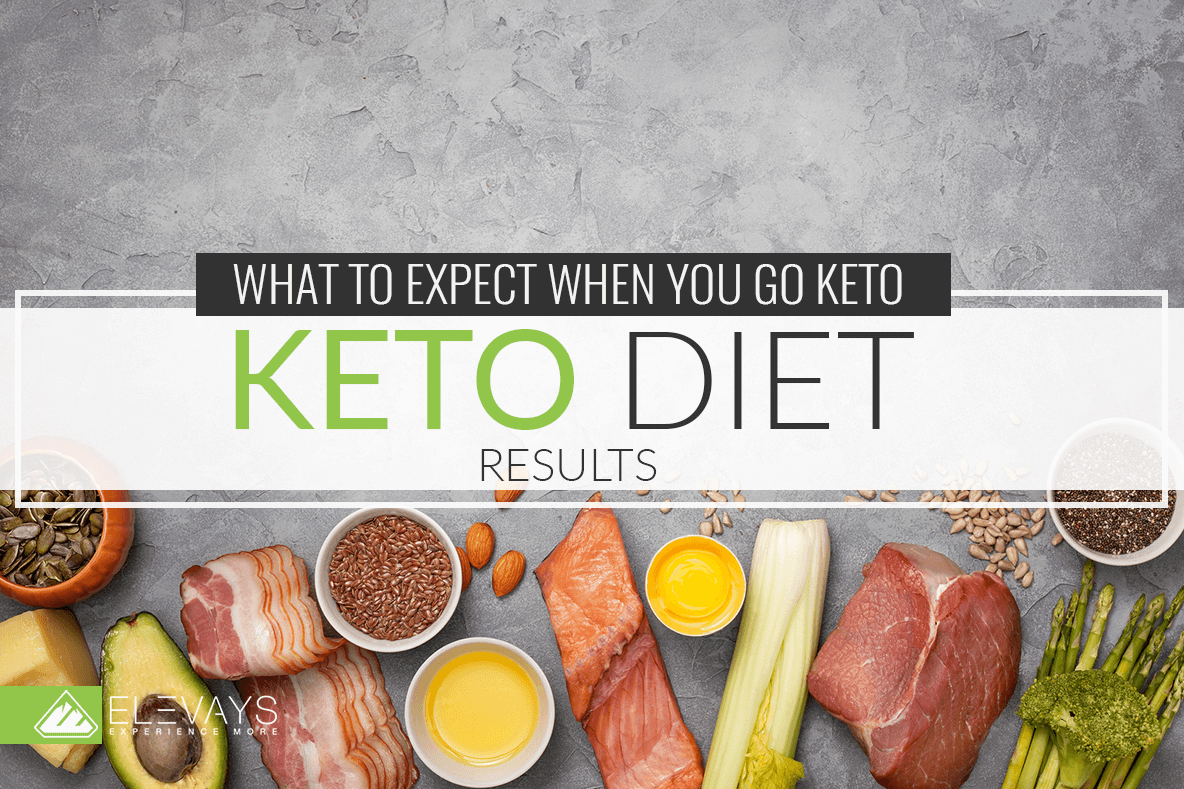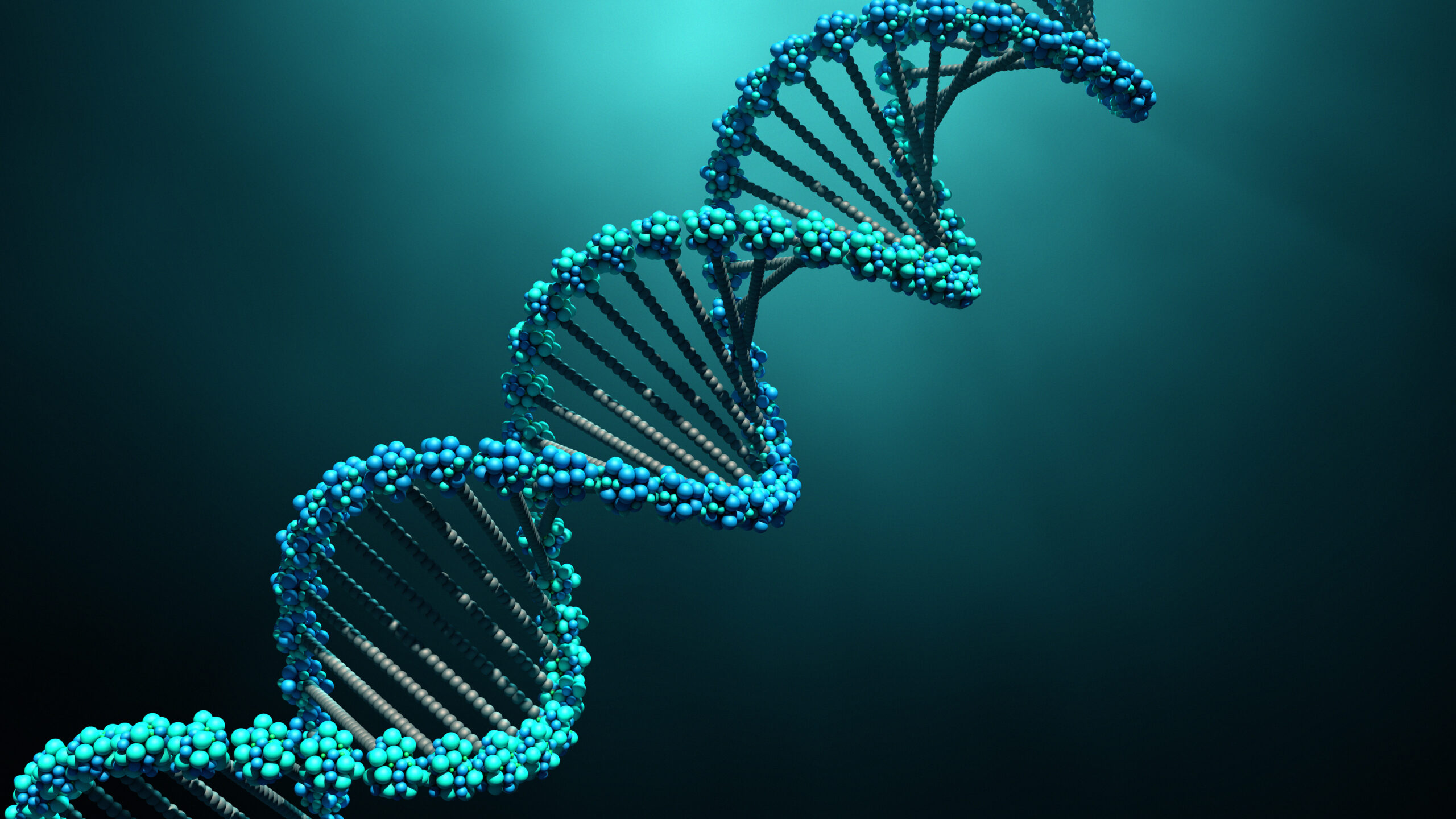The keto diet has been gaining in popularity over the past few years. Most of us are familiar with the what behind keto: it’s a high-fat, low-carb diet. But it is essential to understand the why behind keto as well, so I want us to talk about keto diet results.
If you are going to follow the keto diet, there has to be a payoff, right? Nobody wants to cut out carbs, fruit and treats for no reason. Once you understand the benefits of ketosis – the state of burning fat instead of glucose for energy, brought to us by the keto diet – that payoff starts to shine through.
I’m going to start us out with some general benefits of the ketogenic diet. This is how everyone can expect to feel and what keto diet results you’ll start to see no matter your current state of health.
TRUTH BOMB:
You’re
Already killing it!
If You Were More Consistent With Your Wellness Routine, You’d Be Unstoppable.
Then I’m going more in depth with 12 common chronic health conditions that science is continually showing us improve with keto. You probably won’t have each one, nor will you even be at risk for each one. But these are common enough that most people have struggled or will struggle with a few.
Let’s dive into that big why behind keto!
General Keto Diet Results Most People Can Expect
We’re going to start with the basics. These are the big benefits of the ketogenic diet that most everyone can appreciate.
Weight Loss
First off – we have weight loss and/or weight maintenance. This is what drives the multitudes toward keto. These slimming keto benefits are happening for multiple reasons (1, 2, 3):
- One of the many keto diet benefits is that you eat fewer grams of sugar (no more pre-bed bowls of ice cream allowed – that in and of itself is going to help), but you also wind up with fewer sugar cravings and higher satiation (thanks to all that filling fat and protein). All of this means you eat less and feel fuller at the same time.
- Some experts suggest that the whole low-carb model actually offers a metabolic advantage that can lead to extra burned calories throughout the day.
- When you’ve switched your body over to using fat for energy, you will continue to burn your own fat for fuel as well resulting in weight loss. This gives you a serious advantage in your weight loss goals.
Energy Boost
Next comes higher energy (who doesn’t need that?).
Most people feel really refreshed and energetic when following the keto diet. Your energy levels will be higher, but more importantly they will be better stabilized (4).
Think about it: when you eat a bowl of cereal for breakfast, I’m sure you feel like a little bolt of energy right away that gets you from your car to your office feeling good. Then the crash hits and you probably feel more tired than you did before you ate. This cycle repeats all day.
Thanks to keto’s low-glucose diet (which means low insulin as well), the energy your body is creating is not the crash/burn phenomenon. It’s ongoing.
Beginner’s Tip: Do be aware that when you first switch over to keto, your energy may actually feel low as your body adjusts away from always relying on glucose for fuel. This is normal. Give your body some extra patience to go through this process.
Anti-Inflammatory
Inflammation is supposed to be good for you – and when the immune system uses it properly (like after an injury), it’s actually saving you! Chronic, systematic inflammation which is more and more common in the 21st century, is killing people – leading to cancer, arthritis, heart disease and tons of other chronic conditions and disease states.
Sugar is one of the most inflammatory foods there is, so naturally when we decrease our consumption, inflammation goes down too. Then getting plenty of healthy fats (like omega-3s from fatty fish) is lowering inflammation as well.
But the anti-inflammatory benefits go further than that. Burning ketones actually forces your body to produce fewer reactive oxygen species (or ROS), which can cause inflammation in the body (5). This means that this keto diet result is a double win.
Longevity
Last on our list of general benefits of the ketogenic diet, we have longevity, AKA: you just may live longer.
A massive recent study looked at over 135,000 people varying from 35-years-old to 70-years-old and spanning over 18 countries. For a median of 7.4 years, researchers followed up with these individuals by recording their dietary intake with food frequency questionnaires.
Their ultimate goal was to observe the participants mortality levels as well as what happened to their hearts (Did they develop heart disease? Did they have a heart attack? Etc.).
When the results were in, they separated patients by their macronutrient intake – Who ate a high carb diet? Who ate a high protein diet? Who ate a high fat diet? – and by outcome. Overall, 5,796 of the participants died and 4,784 had a major heart problem.
You know what was associated with these events? A high carbohydrate diet. Total fat consumption was not associated with death or with heart problems.
In fact, those who hate higher amounts of saturated fat were less likely to have a stroke (6). So what these keto diet results show us is following the low-carb model can potentially save you from an early death.
12 Chronic Conditions That Benefit from Keto
Now let’s specialize those benefits of the ketogenic diet.
Below we are going to take a deep dive into 12 health problems that can benefit from a ketogenic diet. Though science has not studied the keto diet in depth enough to come to concrete keto diet results for all of these conditions, there is enough preliminary work to show how high-fat/low-carb eating plans show real promise in further treatment.
-
Cardiovascular Disease
I’ve already showed you the longevity study, and we saw that a high fat diet was not associated with major heart problems, though a high carb diet was. That’s one of the biggest keto diet results to remember when it comes to heart disease.
But we also want to look at ketogenic diet and cholesterol in particular.
One of the most important factors in heart health is cholesterol. Now, you may be thinking that a high fat, high protein diet goes against everything you’ve known about lowering cholesterol. After all, conventional “wisdom” normally told people to cut out meat, eggs, dairy, etc.
Studies on the ketogenic diet and cholesterol levels suggest otherwise.
The keto diet has been shown to (7):
- Reduce total cholesterol levels
- Increase low-density lipoprotein particles
- Lower the insulin that can activate cholesterol enzymes
One 24-week study prescribed the keto diet to 83 obese patients. They ate diets rich in saturated, polyunsaturated, and monounsaturated fats (though higher in the latter two), and only had 30 grams of carbs a day.
The results? Their LDL cholesterol (the “bad” one) “significantly decreased after treatment.” So the ketogenic diet and cholesterol levels are a positive pair (8).
Finally, we already discussed that one of the top keto diet results is weight loss. This is also an essential factor in keeping the heart healthy. That same cholesterol study I mentioned showed the same subject’s body mass index “decreased significantly” while on keto.
-
Type 2 Diabetes
You’re going to find a theme throughout this article: keto diet results are often centered around glucose control and insulin stabilization. So it should come as no surprise that type 2 diabetes is high on the list of the benefits of the ketogenic diet. Here’s how it works (7):
You see, the body has a brilliant system of balancing glucose with insulin. When you eat a bunch of sugar/carbs, your body will send a rush of insulin to balance it out. But when someone is insulin resistant, your body stops responding well to that insulin and then the glucose goes crazy (9).
When you limit high amounts of glucose and the need for too much insulin to counteract it, you can maintain normal, healthy blood sugar.
And then, similar to heart disease, the increased ability to stay at a healthy weight through keto will improve/prevent diabetes as well.
Tip: If you are diabetic, do be aware that you should be in contact with your doctor if you start the keto diet. Your body’s level of insulin will adjust, so your treatment levels may need to adjust to.
-
Cancer
Cancer is one of the scariest words around, so knowing there are cancer keto benefits is really encouraging.
Your cells are normally supposed to both grow and multiply at certain rates. With cancer, they start doing so in hyper drive. There are many reasons why someone could develop cancer, but three of them are excess insulin in the blood, too much glucose in the blood, and chronic inflammation.
Since the keto diet addresses all three of these concerns, researchers have experimented with the keto diet as a cancer preventer and treater (7).
This research has shown the keto diet may limit the growth of tumors when studied with both mice and humans (human studies looked at brain and gastric cancers specifically). Though scientists need more research on the subject in human patients, the initial keto diet results on cancerous mice are showing that combining the benefits of the ketogenic diet with radio-chemo-therapy may be completely safe, and more effective (10).
Side note: many of the experiments on keto diet results with cancer have a much stricter carb restriction than the average keto follower – fewer than 5% of macronutrient intake (11). So simply lowering your carbs, but not lowering them to this extreme, may not have any of the same effect.
-
Hormone Balancing
Hormonal imbalance is exceedingly common, yet often glossed over in women’s health. Many times, the birth control pill is handed out like a Band-Aid to improve symptoms and help a woman feel better, yet nothing is actually changing. Her natural hormones are still out of whack and will become an issue if she wants to conceive or ever get off hormonal contraception.This is particularly true of polycystic ovary syndrome, or PCOS.
One in 10 women are struggling with PCOS which can lead to infertility, irregular periods, insulin resistance, acne, weight gain, skin tags, and, as the name suggests, cysts in the ovaries.
Many of these devastating symptoms can be traced back to having hyperanddrogenism (way too much of the male hormone, androgens) and hyperinsulinemia (too much insulin).
We already know one of the benefits of the keto diet is insulin moderation (when you’re not pumping your body with a ton of glucose, it doesn’t need to produce a ton of insulin). So that’s check mark No. 1.
Proper insulin levels aren’t only about whether or not you wind up with diabetes. Too much can lead to higher androgens. When you lower insulin, you are also lowering the stimulation of androgen. Check mark No. 2.
And once again, the weight loss factor is essential for PCOS health. Many women with PCOS struggle to lose weight, but being overweight makes their symptoms worse (a vicious cycle). What we know about the keto diet results in the realm of weight loss can be helpful here too (7, 11).
-
Acne
Food choices affect organs like your heart, your stomach, your liver – so of course they would also affect the biggest organ in your body: your skin. The keto benefits include fewer acne breakouts (7).
You see, high-glycemic foods encourage your skin to develop acne – one way we know this is the fact that acne occurrence is lower in other cultures/countries that do not typically have high-carb/high-sugar diets.
But why? Listen up, acne sufferers – insulin has more to do with your breakouts than you might have realized.
Insulin stimulates androgens (as we know from our hormone balancing section), and androgens are responsible for hormone-related acne. Androgens overstimulate oil production, and leave you with a face full of blemishes. Fortunately, the keto diet results in appropriate insulin levels, which cool off androgen production.
Keto’s ability to lower inflammation is key here as well.
-
Mitochondrial Function
Everyone wants to get on a diet for weight loss, but nobody really says they’re going on a diet to improve their mitochondrial function. (Hint: they really should!). We’re about to dive into some brain-related benefits of the ketogenic diet. A large factor in these improvements have to do with your mitochondria.
Scientists often refer to mitochondria as the “powerhouse” of your cells. They make your cells work. They are responsible for keeping your cells filled with oxygen from converting food into usable sources of power and energy. In fact, they produce about 90% of the energy that keeps you alive (13).
Research is showing us the ketogenic diet boosts mitochondrial function and even helps new mitochondria grow (14). Why am I mentioning it? Because it’s vital to your health. But also, when your mitochondria are suffering, neurodegenerative diseases can follow.
-
Neurological diseases
While we’re about to look at a few neurological disorders more in depth, I want to cover how some keto diet results are showing promise for neurological diseases at large. In other words, the keto diet may be a very good friend to your brain.
From sleep disorders and headaches to autism and multiple sclerosis, the cause and treatment of various neurological diseases vary widely. However, the keto diet has been shown to be helpful toward brain neurons in general.
The keto diet boosts the function of the mitochondria, calms inflammation, lowers oxidative stress, reduces cell death, improves glucose levels, and regulates nerve excitability – among other tasks (7).
On top of that, ketones can actually cross the blood-brain barrier, which means they provide the brain with energy when glucose is not available (11).
-
Epilepsy
Epilepsy is actually the 4th most common neurological problem humans develop, and keto benefits are extremely promising here.
Since the 1920s, doctors have been aware that the keto diet results in helpful epilepsy treatment. It’s one of the most well-established benefits of ketosis. In fact, one study showed a 30% to 40% reduction in seizures (7).
It’s interesting because even though this diet treatment has been in practice for so many years, researchers still aren’t exactly sure exactly why ketosis provides aid to those with epilepsy. But there are multiple theories mostly surrounded around the ideas that the keto diet acts as an anticonvulsant and influences the neurotransmitters, often lowering “excitability.”
Note that when you are aiming for epilepsy keto benefits, you may be shooting for an even higher amount of fat in your macronutrient breakdown. Often it is somewhere between 85% and 90% (11).
-
Alzheimer’s Disease
Millions of adults are faced with the devastating progression of Alzheimer’s disease each year. Though the disease is chronic, there may be some benefits of ketosis to help out.
Ketones have been shown to improve Alzheimer’s symptoms in studies on both mice and humans. The benefit largely comes from improved function of the mitochondria, an essential component to healthy cell function, and protection against amyloid beta, the main plaque component found in the brains of those with Alzheimer’s disease (7).
Added keto benefits: we already know that the keto diet results in fewer seizures. Alzheimer’s patients are more prone to seizures than adults without the condition.
-
Parkinson’s Disease
Science is in the early stages of digging deeper into the benefits of ketosis on Parkinson’s disease, the central nervous system disorder that damages the brain and causes tremors. But here is what they know so far (7):
- The mitochondrial improvement is quite relevant to Parkinson’s as well. When you have Parkinson’s, there can be damage to the mitochondrial respiratory chain.
- Some patients with Parkinson’s have said the keto diet improves their symptom scores, according to researchers who help them take these measures.
Any help is a good thing since Parkinson’s disease is chronic and still incurable.
-
Brain Trauma
There are some early studies that show keto diet results could be positively improving the aftermath of brain trauma. There are a few particular benefits on the radar of experts (7):
- The keto diet seems to reduce issues with cognition and motor function after the trauma
- The keto diet may lower the volume of cortical contusion (a brain bruise), depending upon the age of the patient
- The keto diet improves epilepsy, as we know, which is beneficial since traumatic brain injuries can often lead to epilepsy
-
Respiratory Function
In the general keto diet results section, I talked about keto as an anti-inflammatory. This is greatly helpful for respiratory asthma. But what about respiratory failure? Keto can help with that too. Much of it boils down to something called the respiratory exchange ratio, which has two factors (7):
- How much carbon dioxide you produce
- How much oxygen you use
Patients with respiratory disorders often have elevated carbon dioxide levels. The keto diet results leads to a reduction of that respiratory exchange ratio. But how does what you eat affect your carbon dioxide output? Researchers believe it could come from reducing the glucose stored in the muscle – especially within the diaphragm (15).
Benefitting from Keto Diet Results
As you’ve seen, the benefits of the ketogenic diet are numerous. If the general health perks weren’t enough to grab your attention, hopefully one of the specific ways it can tackle serious health problems will feel relevant to your life.
I also want to share some resources to help you stay on track with your keto diet, so you can truly reap the benefits of ketosis over the long term.
- First, I have a list of keto-approved snacks. These can really help you stay compliant, while still giving your stomach and taste buds the food they’re craving.
- If you’re already on the keto diet and you’re dealing with symptoms as your body becomes keto adapted check out this article for an explanation behind each one.
It’s your turn to talk to me! I’d love to hear from those of you who have tried the keto diet – what benefits of ketosis have you discovered for yourself? Then I’d love to hear from those about to try the keto diet – what keto benefits are you after? Leave your thoughts in a comment below.
Sources:
- Westerterp-Plantenga MS, Nieuwenhuizen A, Tome D, Soenen S, Westerterp KR. Dietary protein, weight loss, and weight maintenance. Annu Rev Nutr 2009; 29: 21–41.
- Fine EJ, Feinman RD. Thermodynamics of weight loss diets. Nutr Metab (Lond) 2004; 1: 15.
- Halton TL, Hu FB. The effects of high protein diets on thermogenesis, satiety and weight loss: a critical review. J Am Coll Nutr 2004; 23: 373–385.
- Fact vs Fitness, (2017). Paleo vs Atkins vs Ketogenic Diet. Retrieved from: https://factvsfitness.com/paleo-vs-atkins-vs-ketogenic-diet/
- Mercola. (2018). Everything You Need to Know About the Ketogenic Diet. Retrieved from: https://www.mercola.com/calendar/2018/keto.htm
- Dehghan, MahshidDiaz, R et al. (2017) Associations of fats and carbohydrate intake with cardiovascular disease and mortality in 18 countries from five continents (PURE): a prospective cohort study. The Lancet , Volume 390 , Issue 10107 , 2050 – 2062 Retrieved from: http://www.thelancet.com/journals/lancet/article/PIIS0140-6736(17)32252-3/fulltext
- Paoli, A., Rubini, A., Volek, J. S., & Grimaldi, K. A. (2013). Beyond weight loss: a review of the therapeutic uses of very-low-carbohydrate (ketogenic) diets. European journal of clinical nutrition, 67(8), 789. Full text: https://www.nature.com/articles/ejcn2013116
- Dashti, H. M., Mathew, T. C., Hussein, T., Asfar, S. K., Behbahani, A., Khoursheed, M. A., … Al-Zaid, N. S. (2004). Long-term effects of a ketogenic diet in obese patients. Experimental & Clinical Cardiology, 9(3), 200–205. Retrieved from: https://www.ncbi.nlm.nih.gov/pmc/articles/PMC2716748/
- NIH. (2019). Prediabetes & Insulin Resistance. Retrieved from: https://www.niddk.nih.gov/health-information/diabetes/overview/what-is-diabetes/prediabetes-insulin-resistance
- Allen, B. G., Bhatia, S. K., Anderson, C. M., Eichenberger-Gilmore, J. M., Sibenaller, Z. A., Mapuskar, K. A., … Fath, M. A. (2014). Ketogenic diets as an adjuvant cancer therapy: History and potential mechanism. Redox Biology, 2, 963–970. http://doi.org/10.1016/j.redox.2014.08.002
- Retrieved from: https://www.ncbi.nlm.nih.gov/pmc/articles/PMC4215472/
- 11.HealthLine, (2016). 7 Tips to Get Into Ketosis. Retrieved from: https://www.healthline.com/nutrition/7-tips-to-get-into-ketosis
- Fauser BC, Tarlatzis BC, Rebar RW, Legro RS, Balen AH, Lobo R et al. Consensus on women’s health aspects of polycystic ovary syndrome (PCOS): the amsterdam ESHRE/ASRM-sponsored 3rd PCOS consensus workshop group. Fertil Steril 2012; 97: 28–38. . e25.
- Universtiy of Cambridge. (2015) What Are Mitochondria? Retrieved from: http://www.mrc-mbu.cam.ac.uk/what-are-mitochondria
- Rho, J. M., & Rogawski, M. A. (2007). The Ketogenic Diet: Stoking the Powerhouse of the Cell. Epilepsy Currents, 7(2), 58–60. http://doi.org/10.1111/j.1535-7511.2007.00170.x Retrieved from: https://www.ncbi.nlm.nih.gov/pmc/articles/PMC1867088/
- Ferguson GT1, Irvin CG, Cherniack RM. (1990) Relationship of diaphragm glycogen, lactate, and function to respiratory failure. Am Rev Respir Dis.1990 Apr;141(4 Pt 1):926-32.
- https://www.ncbi.nlm.nih.gov/pubmed/2109559









Having read this I thought it was really enlightening.
I appreciate you spending some time and energy
to put this article together. I once again find myself personally spending way too much time both reading and commenting.
But so what, it was still worth it!
We’re so glad you found this helpful! Anytime spent reading and learning is never a waste of time. We also love reading through comments, so anytime you feel like leaving us one, please do!
Ah! What a timely post. I’ve been reading about keto diet in the last few weeks. Thanks for sharing this great info. Page bookmarked.
Hi Xuhi! We’re so glad you’re loving our content and finding it useful. Thanks for letting us know!